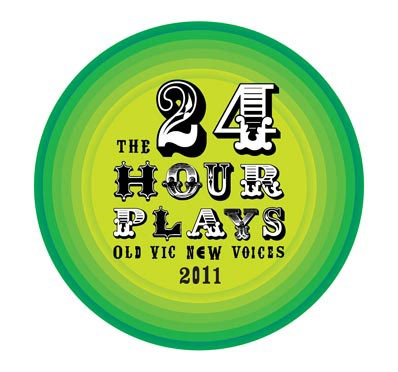24-Hour Play People
The 24-Hour Plays, written for The Spectator, 7 November 2011
This month, Mike Bartlett’s new play, 13, opens at the National. It follows the success of his play Earthquakes in London. At Paines Plough, George Perrin and James Grieve unveil the prototype for a revolutionary new theatre space, a portable in-the-round  auditorium. And, at the Arcola, Tom Atkins brings us How The World Began, which comes to London after a hit run in California.
auditorium. And, at the Arcola, Tom Atkins brings us How The World Began, which comes to London after a hit run in California.
The link between these may not be obvious, but it’s crucial. Like many of theatre’s fastest rising stars, each these gained vital career traction at the Old Vic’s now-legendary 24 Hour Plays, the boot camp that launches newcomers into the industry by giving them experience, contacts and confidence they wouldn’t get anywhere else.
The premise is simple: writers, directors, actors and producers are given 24 hours to stage a short play on the Old Vic’s storied stage. In truth, the experience is much longer lasting. We’re not just talking about a 24 hour Red Bull binge (although that helps): there’s a lengthy audition process, replete with games, training exercises and bonding opportunities.
Of the 1,200 applicants seen, 100 are called to the weekend-long final audition, which includes a flash-challenge to create a short play with six hours notice. This means that those who actually make it into the final company of 52 will have created two or three pieces of ‘emergency theatre’ by the time the party’s over.
Even those who don’t reach the end will have left with added training and a full contacts book – at the after-show drinks, young actors were buzzing with the plans they’d cooked up to work with friends they’d made at the final auditions – although the rejection process can be heartbreaking once the group has already started to coalesce.
But, for the survivors, a new emotion takes over: fear. “There’s nothing more intimidating, more of a cold thrill, than coming straight out of drama school and finding yourself on the Old Vic stage,” said one actor, shaking from sleep deprivation before the curtain went up last weekend. It’s this that provides the core confidence for graduates of the Old Vic New Voices scheme — and the psychological terror.
This is Kevin Spacey’s theatre, the old haunt of Olivier, Maggie Smith and Cate Blanchett. It’s the mother of our present National Theatre, and even its flops can become legends (like Peter O’Toole). Many actors dream of crowning a career by performing here; these young people, aged 25 and younger, are making their debuts in front of an invited audience of key industry figures. Survive that, and you’ll survive anything theatre can throw at you.
Writing is crucial to the process. One day before show time, seven writers are introduced to the cast and asked to choose four or five actors to inspire their work. It’s the best way of ensuring that the plays are genuinely written on the spur of the moment — until lift off, playwrights have little idea what combination of skills, style, physique or gender they’ll have with which to work. Then they write through the night to come up with workable scripts, with officious producers hovering to offer coffee, research or even a helpful massage.
To those in the know, it’s no surprise that this takes place in the offices of IdeasTap. A major philanthropic force behind the development of today’s young thespians, IdeasTap has been particularly committed to young writers. They’ve also collaborated with Mobius Industries, one of the best PR companies in the arts, to make sure these young talents have as public a platform as possible for their work.
So what’s the result? Seven sharp plays and remarkably convincing performances. Faced with a blank screen, British writers seem less drawn to the apocalyptic than their American counterparts, who showcased similar scratch performances in June under the auspices of another scion of the Old Vic New Voices scheme: the TS Eliot exchange.
Compared to the morbidity of the Americans, the Brits seemed remarkably optimistic — even doom and gloom about funding cuts gave way to off-the-wall humour (a mothers’ meeting ends up earnestly discussing the merits of ‘looting in burkhas’). Among many fine offerings, Alex Oates’ play Zombie Nation is a standout: the Facebook generation’s greatest fear, gone large.
But the most powerful moment of the 24 Hour Plays wasn’t a witty one-liner, dazzling coup de theatre, or even the revelation of Eleanor Fanyinka’s special skill (guesses on a postcard, please). Instead, it was the scene outside the theatre at the interval: a glowing line of fathers and mothers jostled with camera-phones to snap pictures of the Old Vic Theatre billboard, a temple of flashing lights now bearing the names of 52 unknowns.






